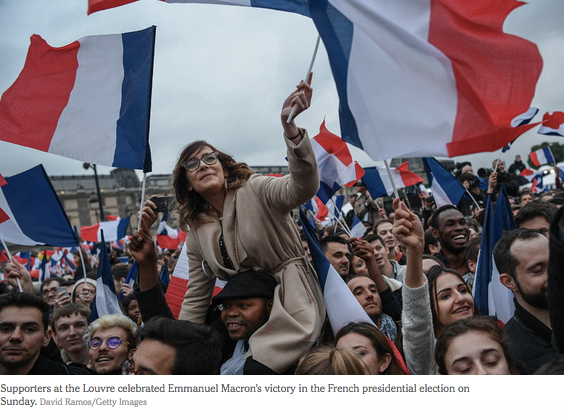WASHINGTON — To the extent that President Trump or his strategists saw his against-the-odds election last year as the leading edge of an international movement, the presidential vote in France over the weekend signaled that Europe was not ready to enlist.
Despite the rise of nationalist parties and Britain’s vote last year to leave the European Union, the victory of the centrist candidate Emmanuel Macron over the far-right insurgent Marine Le Pen represented the third time since Mr. Trump’s election that voters in Europe have essentially rejected his fiery brand of politics.
Rather than finding a series of like-minded figures in power across the Atlantic, Mr. Trump now finds himself facing a European tandem in Mr. Macron and Chancellor Angela Merkel of Germany that strongly supports the European Union and will take a harder line on President Vladimir V. Putin’s Russia. While populist sentiment remains strong in Europe, there are fewer paths ahead for candidates aligned with Mr. Trump’s thinking to assume power in key countries.
How France Voted
Emmanuel Macron won the French presidency over the right-wing nationalist Marine Le Pen in a sweeping victory that resounded across the country. The result bolstered the European Union and showed the limits of Ms. Le Pen’s far-right message.




